Shinagawa – History Tours Vol.5
Shinagawa-jinja Shrine Area Course
This month’s course features some harmony between Shinagawa’s history and nature. Experience the city’s rich history while visiting a shrine where people have worshipped since ancient times, historic sites that tell the story of Shinagawa’s development, and more.
Inquiries: Cultural Assets Subsection, General Affairs Section
(Tel: 03-5742-6839, Fax: 03-5742-6890)
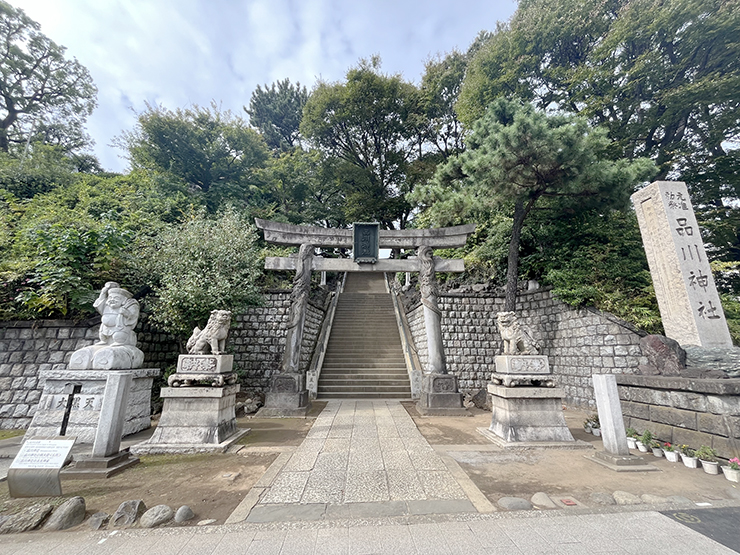 |
MAP 1
Shinagawa-jinja Shrine
Shinagawa-jinja Shrine has a history dating back some eight centuries. Two of the highlights of its precinct include a fujizuka mound representing Mount Fuji and some of the oldest stone torii gates in Tokyo. At the Kita-no Tenno-sai Festival held there early every June, the shrine sends mikoshi (portable Shinto shrines) out into the city streets, which are lined with visitors.
Location: 3-7-15 Kita-Shinagawa
|
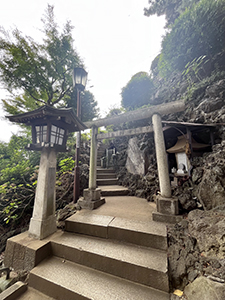
Entrance to the fujizuka mound |
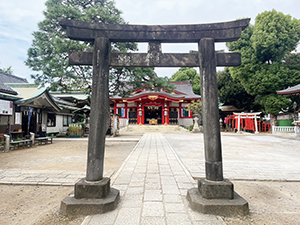
Main hall and stone torii gate |
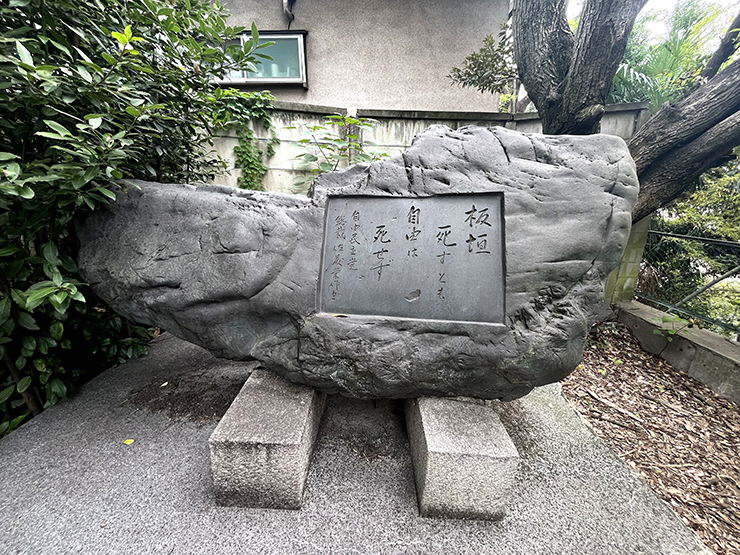
Stone monument |
MAP 2
Itagaki Taisuke Gravesite
Itagaki Taisuke was a politician active between the end of the Edo Period and the Meiji Era who led the Freedom and People’s Rights Movement. Next to his grave is a stone monument bearing his famous cry, “Itagaki may die, but freedom shall never die!”
Location: Behind Shinagawa-jinja Shrine, 3-7-15 Kita-Shinagawa |
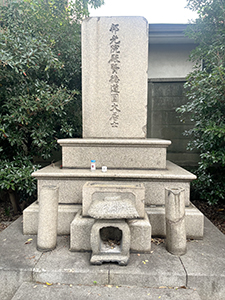 |
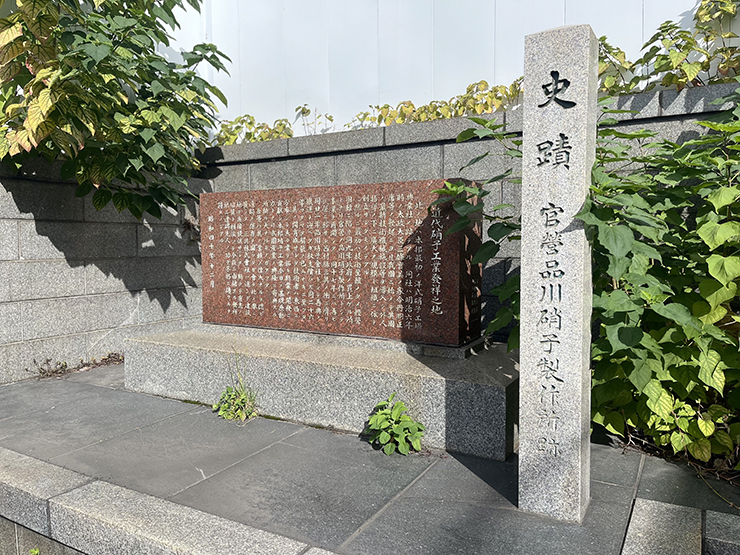 |
MAP 3
Shinagawa Glass Factory Site
Built in 1873, this government-owned factory was Japan’s first modern glass factory, producing glass products such as beer bottles. The factory focused on the introduction of new technology and the development of engineers, and played a crucial role in laying the foundation for Japan’s glass industry.
Location: 4-11-5 Kita-Shinagawa
|
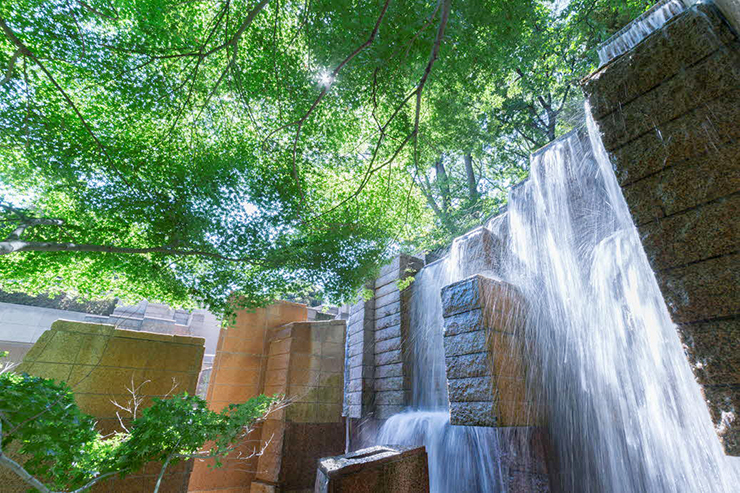 |
MAP 4
Gotenyama Garden
The Gotenyama area is so named because it was the site of the Shinagawa Goten, the villa of the Edo shogun. This Japanese garden is a perfectly preserved piece of history. Visitors can stroll through the garden while enjoying the colorful seasonal flora.
Location: Inside Gotenyama Trust City, 4-7-35 Kita-Shinagawa |
Reference: Shinagawa History Tours (in Japanese only)
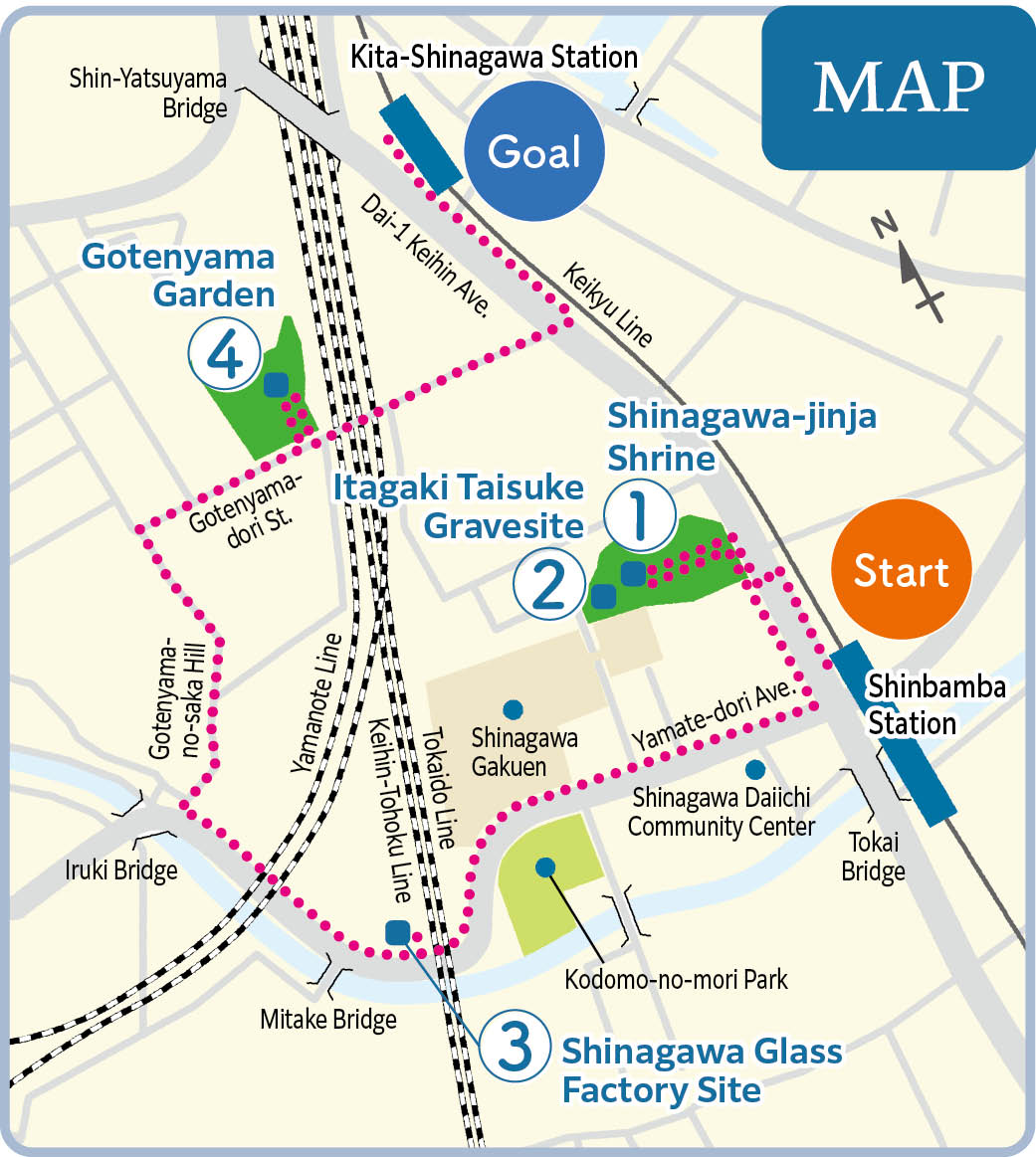
|
| |
About 2 minutes |
 |
0.1 km |
0 minutes |
 |
0 km |
❷ Itagaki Taisuke Gravesite |
About 12 minutes |
 |
0.8 km |
❸ Shinagawa Glass Factory Site |
About 12 minutes |
 |
0.8 km |
About 7 minutes |
 |
0.5 km |
Goal Kita-Shinagawa Station |
|
Let’s check out some of Shinagawa Historical Museum’s cultural properties! |
Large Tokoname Ware Jar
This large jar, found in Gotenyama, is believed to have been produced in the early fifteenth century in what is now Tokoname City, Aichi Prefecture. It was made using the coiling technique, in which rope-like rings of clay are stacked on top of each other. Jars such as this one were typically transported to Shinagawa by sea. Similar large jars have also been discovered in the Tama River basin area, including in Fuchu City and Hachioji City. |
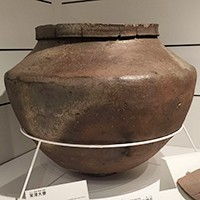 |
■Hours:9:00 a.m. to 5:00 p.m.
(the entrance closes at 4:30 p.m.).
■Closed:Mondays (or the next weekday if Monday is a national holiday) and during the yearend/New Year’s holidays.
Note: The museum may be closed on days other than those listed above.
■Admission: 100 yen
(50 yen for elementary and junior high school students)
Note: Admission is free for elementary and junior high school students residing in or enrolled in a school in Shinagawa, people over the age of seventy, and people with disabilities.
■Inquiries: Shinagawa Historical Museum
(Tel: 03-3777-4060, Fax: 03-3778-2615) |

Please scan here for the museum’s website. |
|
|











